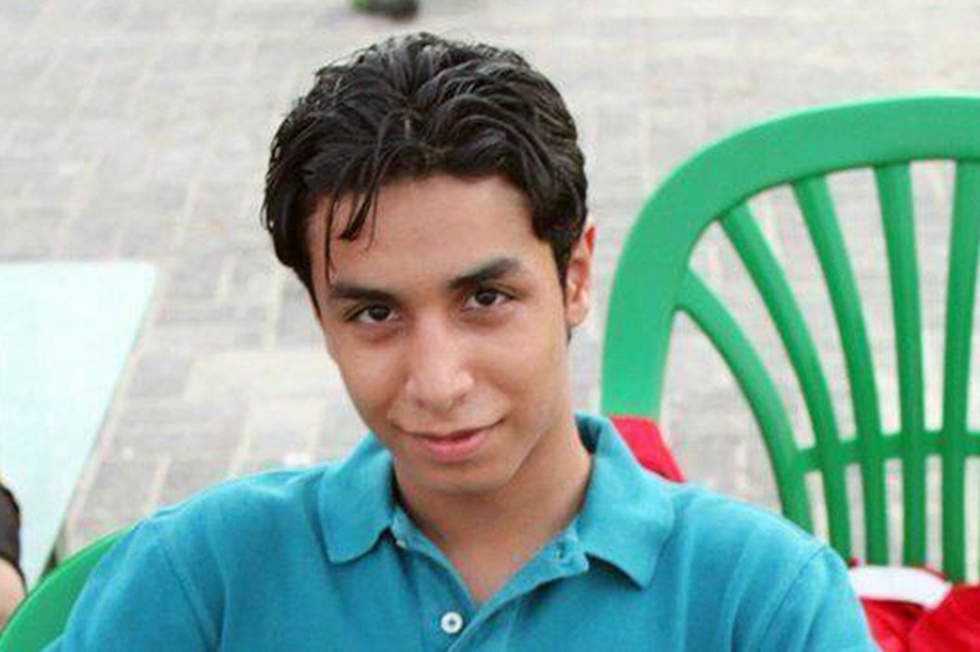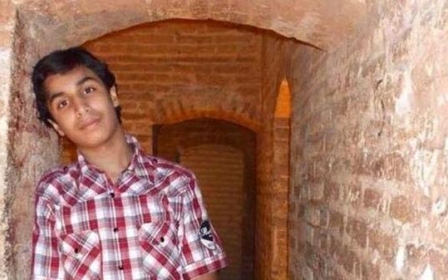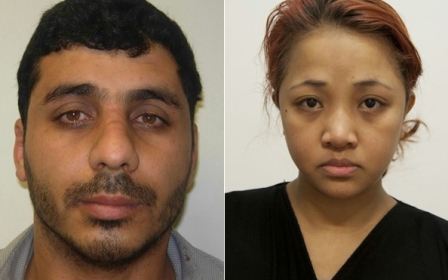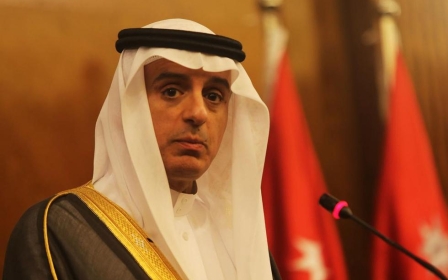Saudi activist fears spate of young protesters to be executed imminently

Human rights activists from Saudi Arabia have expressed fear to Middle East Eye that the highly publicised planned crucifixion of a young Saudi man could pave the way for others to be executed who were minors at the time of their arrest.
Ali al-Nimr, who was 17 at the time of his alleged offences, was convicted in May last year on charges relating to participation in a 2012 protest in Qatif, Eastern Province. The alleged offender, whose paternal uncle is a prominent Shia cleric, has exhausted all avenues of appeal and King Salman’s signature is all that remains for his execution to be approved.
"It is feared that his execution is likely to set a precedent for another six detainees - two of which were also children at the time of their offences" said Ali Adubisi, Director of the European Saudi Organization for Human Rights, which is based in Germany.
Dawood Hussien Al-Maroon and Abedallah al-Zaher were also under eighteen when they were arrested in 2012, but were sentenced to death last year on similar charges. Both were tried in secret and are still being held by the state.
Al-Maroon is understood to have been initially arrested by police in May 2012 aged 17, but released shortly afterwards on the understanding he would observe the ongoing Shia protests and pass information back to the security services.
Al-Maroon has said he refused to do so and eight days later he was re-arrested at Dammam Central Hospital while under-going treatment for a traffic accident.
While in detention, Al-Maroon claims his hands and feet were beaten, that he was forced to lie on his stomach and was trampled by security officials, and was beaten on a part of his leg which had been injured when security forces had used live ammunition against him during a street protest in January 2012.
Al-Maroon's claims, published by the European Saudi Organization for Human Rights (ESOHR), also include allegations of security officials using abusive language against the victim's religious beliefs, being hung upside down for extended periods of time and electrocutions. He was also held in solitary confinement for a month, and later signed a forced confession that was used to convict him in January 2014. At the time of his initial arrest he was 17.
Al Zaher faced trial in the same court as al-Maroon and was 17 at the time of his death sentence being handed down.
Execution for crimes commited by minors is illegal under international law, notably The Convention on the Rights of the Child (CRC), to which Saudi Arabia acceded in 1996.
It is conventional for Saudi death sentences to be carried out in secret, with the families only notified after the sentence has carried out.
Al-Nimr has also claimed he was tortured before his trial, and forced into signing a false confession by the Saudi security services, who arrested him in February 2012 after he too took part in protests in the Shia-dominated Eastern Province.
“He was out there for Shia rights,” his brother told MEE, “He went because his school friends were going, because the older boys were going, because everyone was going. He was just a child at the time, he didn't really understand the risk.”
Al-Nimr's court judgment was described by Human Rights Watch as having “serious flaws,” including a prolonged pre-trial detention period without any review process, allegations of torture by security officials before the trial, and prevention of access to a lawyer.
When he later told the court he had been tortured and wanted to retract his confession, the teenager was told “religious scholars have ruled that retracting a confession for a discretionary crime is not acceptable.”
ESOHR Director Adubisi told MEE that “human rights violations carried out by the Saudi government are always justified through ‘Islamic law,’ when in reality the Islamic religion has been distorted significantly by the Saudi government."
“This use of Islam cannot continue. Where in Islamic law there is a text or interpretation that says this religion has the right to exercise torture?” Adubisi added.
The charges against Al-Nimr include “breaking allegiance with the ruler,” “going out to a number of marches, demonstrations, and gatherings against the state and repeating some chants against the state,” and setting up a website using his smartphone to incite demonstrations.
“Saudi Arabia has been on an execution spree in 2015, but beheading a child offender whose trial was unfair would be an appalling new low,” said Joe Stork, deputy Middle East director. “Unfair trials of Shia citizens amount to no more than a legal veneer for state repression of their demands to end long-term discrimination. The authorities should not compound their repression by killing a child offender.”
New MEE newsletter: Jerusalem Dispatch
Sign up to get the latest insights and analysis on Israel-Palestine, alongside Turkey Unpacked and other MEE newsletters
Middle East Eye delivers independent and unrivalled coverage and analysis of the Middle East, North Africa and beyond. To learn more about republishing this content and the associated fees, please fill out this form. More about MEE can be found here.




